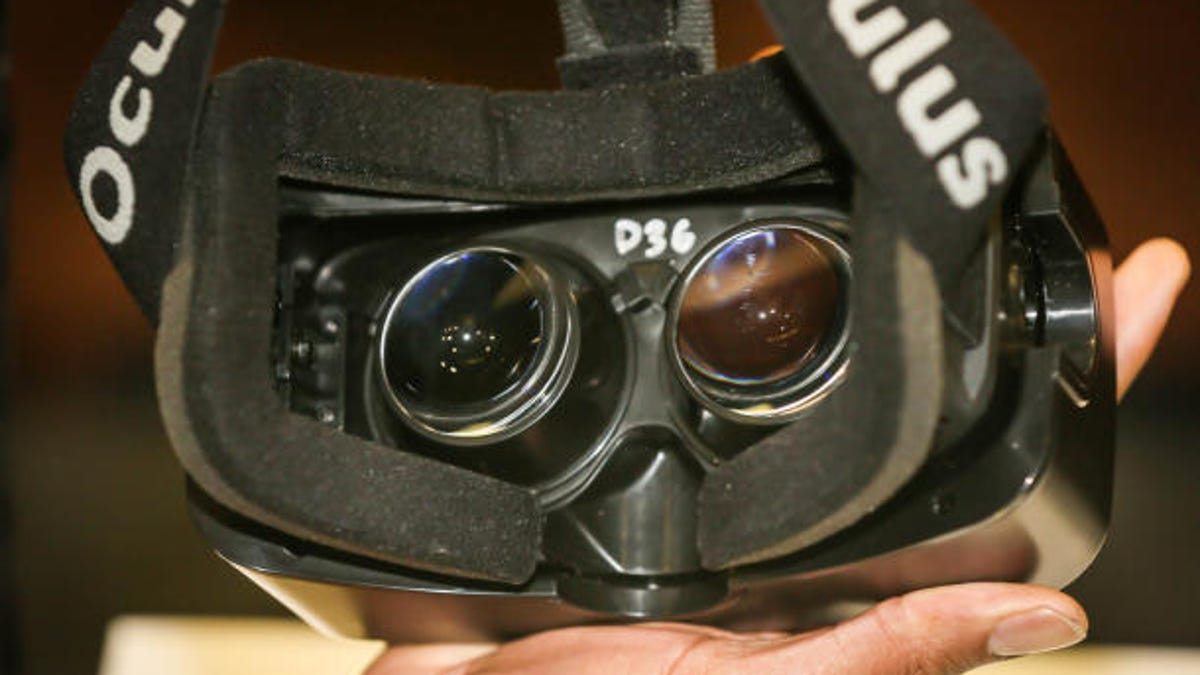Zuckerberg: Facebook only spends big on 'rare' companies
The social network has made headlines with two multibillion dollar acquisitions in two months. But CEO Mark Zuckerberg stresses that's the exception and not the rule.

Sure, Marissa Mayer and Yahoo may get all the press for its startup shopping spree, acquiring almost 40 companies in short time as CEO. But when it comes to sheer spending power and blockbuster purchases, no one of late outdoes Mark Zuckerberg and Facebook. The social network on Tuesday announced its latest big buy: the virtual reality darling Oculus for $2 billion in cash and stock.
Facebook all but started the war for $1 billion-plus startups when it bought Instagram in 2012 ahead of its initial public offering -- a price that made people blush at the time, but now seems like a pittance by Facebook's new standards. Case in point: the company's jaw-dropping announcement in February that it's buying the messaging service WhatsApp for $19 billion.
But Facebook does not want you to get it twisted: the company is not just blowing cash willy nilly. "I definitely don't think you should expect us to make multibillion dollar acquisitions within a couple of months frequently," said chief executive Mark Zuckerberg, on a conference call with investors."These are two kind of rare instances. Certainly the rate will not continue." He also said the companies themselves are rare.
Of course, Facebook is not the only company in Silicon Valley looking to stock its war chest. And when it comes to acquisitions, it seems that every tech giant has formed an individual reputation in its own M&A philosophy. If the stereotype related to Yahoo is "buy everything in sight," then Apple's is "no big names, just core technologies." Apple even took what appeared to be a swipe at Facebook at its annual shareholder meeting last month. "We're not in a race to pay the most. Not in a race to get the headline," said Apple chief executive Tim Cook. His comments came a few weeks after Facebook announced its WhatsApp acquisition. Still, he didn't rule out a splashy buy. "That doesn't mean we won't buy a big company tomorrow afternoon."
So what makes a company "rare," at least for Facebook? WhatsApp had staggering growth and a global footprint. "The theory for WhatsApp...not many services in the world can reach 1 billion people," Zuckerberg said. The startup was almost halfway there before Facebook took over -- 450 million active users, mostly based outside of the US.
Instagram was a hipper, younger Facebook -- not to mention that they were also growing at an alarming rate. "One day we thought it could reach a hundred million people," said Zuckerberg, adding that it grew way beyond that in the first year under Facebook's stewardship.
As for Oculus, Zuckerberg sees it as an outlier, years ahead of everyone else, with all the relevant talent. "There are not many things that are candidates to be the next major computing platform," Zuckerberg said. He said that he sees a future way beyond gaming: virtually sitting courtside at a basketball game, touring a museum, or consulting with your doctor from your home.
Still, there are skeptics. Michael Pachter, an analyst at Wedbush, cited the sheer difficulty of building out an ecosystem. "You're gonna need a lot of apps," he said. The same could be said about the audacity Apple had to build out a smartphone ecosystem. But a phone is something people could already relate to, and virtual reality goggles are, well, virtual reality goggles.
While Zuckerberg wants to quell the idea that Facebook splurges without conscience, the truth is that he has room to experiment. The stock is riding high at over almost $65, and in the last quarter, the company brought in $2.59 billion in revenue. So Pachter concedes it's a long game. "Clearly Facebook sees something that us mere mortals don't," he said.

